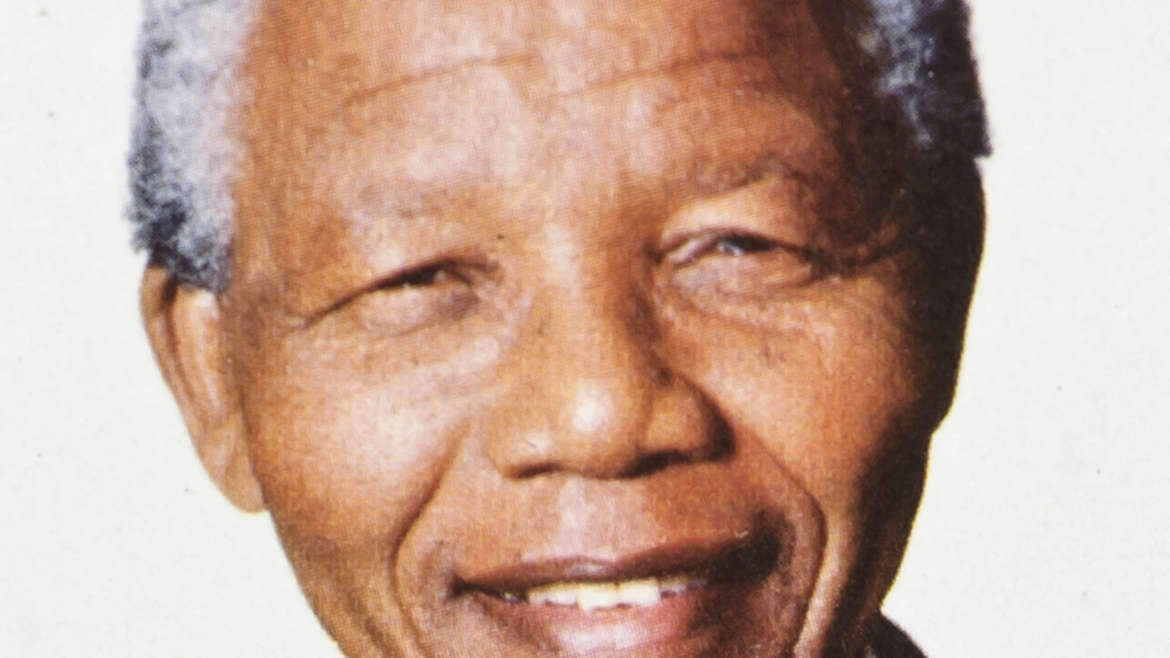Nelson Mandela enjoyed such a long twilight that it’s easy to forget what a threatening figure he once cut—not just in South Africa but in the United States, where he was routinely condemned as a Communist terrorist. In 1985 William F. Buckley wrote: “where Mandela belongs…is precisely where he is: in jail.”
Mandela made no bones about being a revolutionary; he sought not just to “reform” the system of apartheid, to moderate its “excesses,” but to wipe it off the face of the earth.
Martin Luther King Jr., to whom he is often compared, was a preacher first and a patriot second. He sought to redeem his nation by persuading it to live up to its own highest ideals. Mandela was educated by Christian missionaries but he grew up to become a lawyer, and he approached his mission with a prosecutorial intensity. The apartheid system, he wrote in his autobiography Long Walk to Freedom, “represented the codification in one oppressive system of all the laws and regulations that had kept Africans in an inferior position to whites for centuries.” It was “diabolical in its detail, inescapable in its reach, and overwhelming in its power.”
Like King, Mandela was impressed with Gandhi, but unlike King, he came to believe that nonviolence can be effective only when your enemy plays by the same rules you do. The apartheid regime—which denied not just his rights but his humanity—manifestly did no such thing. “Nonviolence was not a moral principle,” he wrote, “but a strategy; there is no moral goodness in using an ineffective weapon.”
Mandela never claimed to be a saint. He was a fighter and a politician and a consummate survivor, but what made him such a transcendent figure was his capacity for forbearance. In 1997, when his transformation from prisoner of the state to head of the state was complete, he was anything but vindictive. In victory, he found his pulpit. “I saw my mission as one of preaching reconciliation, of binding the wounds of the country, of engendering trust and confidence,” he wrote; “I reminded people again and again that the liberation struggle was not a battle against any one group or color, but a fight against a system of repression.”
Mandela recognized that South Africa’s whites were also held back by apartheid; the system didn’t cut them off just from the world but from their own better natures. He became close to Christo Brand, one of his warders at Robben Island and Pollsmoor Prison. One day he wrote Brand’s wife a letter. “Your husband,” he informed her in fluent Afrikaans, “is a very talented man with a heart of gold….But he lacks determination, and consequently neglects his own interests and future, as well as those of his wife and children. On countless occasions I have tried to persuade him to study, but my attempts have failed completely. I must now request your help. Perhaps you will succeed in getting him to do what other responsible young people across the world do—promote their interests and futures.”
Apart from his own studies, Mandela’s favorite pastimes during his nearly three decades behind bars were tennis and gardening. “A garden,” he wrote in a much-quoted passage in his autobiography, “was one of the few things in prison that one could control. To plant a seed, watch it grow, to tend it and then harvest it, offered a simple but enduring satisfaction.” It’s tempting to read a Zen-like detachment into his words, but they are anything but. “The sense of being the custodian of this small patch of earth offered a small taste of freedom,” he continued.
“In some ways, I saw the garden as a metaphor for certain aspects of my life. A leader must also tend his garden; he, too, plants seeds, and then watches, cultivates, and harvests the results. Like the gardener, a leader must take responsibility for what he cultivates; he must mind his work, try to repel enemies, preserve what can be preserved and eliminate what cannot succeed.”
There is the calm of egolessness, but there is also the grit of perseverance and even a certain hint of ruthlessness: Preserve what can be preserved and eliminate what cannot succeed.
After interviewing Mandela for the New York Times in 1997, Anthony Lewis attempted to unravel the enigma of his strength. “He is both an autocrat and a democrat,” one of Mandela’s former colleagues told him. “But he has an unyielding respect for human beings, and for law. What other leader of a liberation movement has subjected himself to legal limits when he won power?”
Lewis noted Mandela’s “discipline, his mastery of symbols, his single-minded purpose, his magnanimity, his patience, his realism, his sense of power.” He quoted Nadine Gordimer on Mandela’s “total lack of personal self-protection and vanity.” But what about his pride? Lewis asked her. “Not pride,” she answered; “self-respect. You’re entitled to that when you know who you are and what you stand for.”
History will remember Mandela as one of the great transformational figures of all time, but if the world changed beyond recognition during his long life, Mandela remained essentially the same: confident in his rightness, unyielding in his determination and, though not always gentle, never mean. He was the still center around which others turned, a great fulcrum that moved the world.




1 Comment